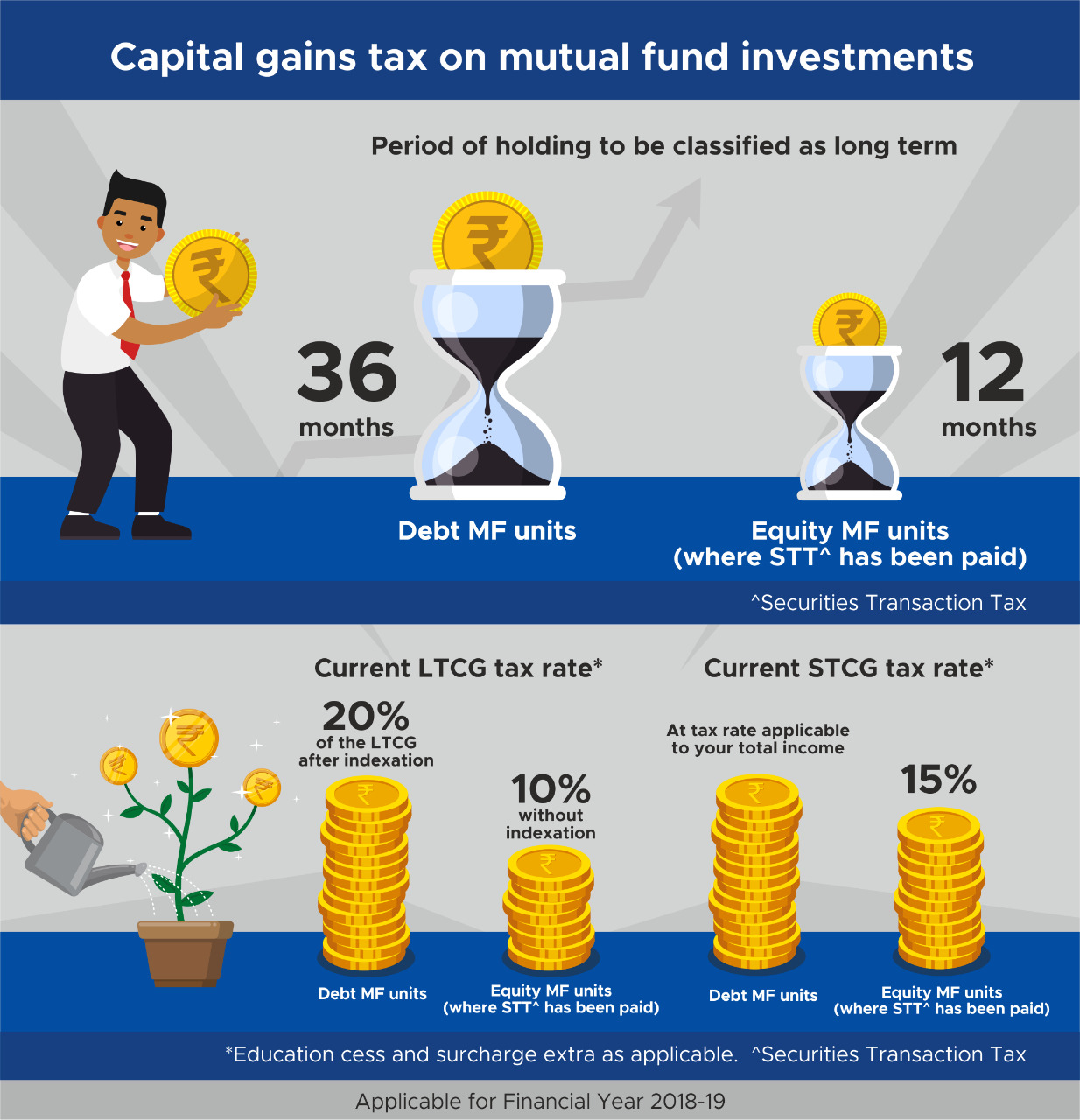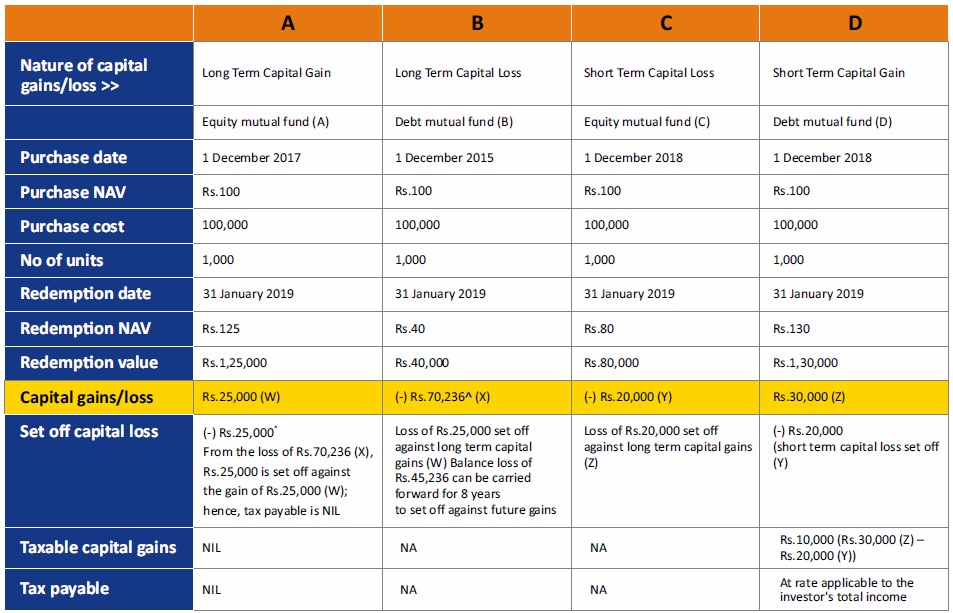
You can reduce your tax liability with some planning. Profits you make when you redeem your mutual fund investments are taxable in some cases. Let’s find out how to reduce your taxes payable on these profits.
Under the tax laws, capital gains or losses can be long term or short term depending on how long you stay invested. In case of debt funds, if you hold your investment for less than 3 years, the gains are short term capital gains. If you hold your investment for more than 3 years, your gains are long term capital gains.
In case of equity funds, if you hold your investment for less than 12 months, the gains are short term capital gains. If you hold your investment for longer than 12 months, then the gains are long term capital gains. A balanced or hybrid fund is treated as an equity fund if equity forms at least 65% of its portfolio. If the equity component is less than 65%, it is treated as a debt fund.

*Indexation increases your investment cost to adjust for inflation. This, in turn, reduces the taxable capital gains. In other words, it reduces the tax payable
Understanding the concept of capital losses
Before moving to the section on capital loss tax and capital loss deduction, let us understand the meaning of the term capital losses. The term refers to the financial loss you incur when the sale price of your investment or asset is lower than its original purchase price. Capital losses occur when the value of the investment declines over time and is visible in investments across asset categories like stocks, bonds, mutual funds, real estate, and other financial instruments.
When an investor sells an asset for less than its purchase price, the difference between the purchase price and the sale price represents the capital loss. Given that it is dependent upon the sale, this loss is realised only when the investment is sold and you can use it to benefit from capital loss tax norms. This loss can occur due to various factors, including changes in market conditions, economic downturns, company-specific issues, or unfavourable events affecting the industry or sector in which you have invested. These factors can lead to a decrease in demand or investor sentiment, resulting in a decline in the investment's market value and thereby leading to you facing a loss on your invested capital.
Use losses to reduce tax
The tax laws allow you to adjust losses you have made on your investments against capital gains. By doing this, your net capital gains are lower and therefore, you pay lesser tax. There are however, some restrictions:
- Long term capital loss can be set off against long term capital gains only (for example, long term capital loss incurred on a debt fund can be set off against long term capital gains earned on debt fund investment).
- Short term capital loss can be set off against short term capital gains or long term capital gains (for example, short term capital loss incurred on equity shares or equity fund can be set off against short term capital gains earned on equity shares or equity fund or long term capital gains earned on a debt fund).
Below are some examples of how to set off your capital losses against capital gains:

^Based on cost inflation index (the government publishes a Cost Inflation Index (CII) table based on which the investor can inflate his cost of investment in debt funds; this helps lower the amount of capital gains/increases the capital loss for set off. CII is only available for investments in debt funds held for 3 years and above). Here is how the loss in Column B has been calculated:
CII number for FY18-19 = 280
CII number for FY15-16 = 254
Indexed cost: Rs.100 x Rs.280/Rs.254 = Rs.110.236
No of units = 1,000
Total indexed cost = Rs.1,10,236 (1,000 units x Rs.110.236)
Redemption value = Rs.40,000
Long Term Capital Loss = Rs.70,236 (Rs.40,000 – Rs. 1,10,236)
Note:
- Long term capital gains up to Rs.1 lakh are tax-free. The above example does not consider this clause.
- If the investor cannot set off all the capital losses incurred, he can carry forward the losses for 8 years to set off against future capital gains.
- Exit loads have been ignored.
Use your capital losses smartly to reduce the tax liability on your capital gains!
To plan your taxes, seek professional guidance from your financial advisor.
An investor education initiative by Edelweiss Mutual Fund
All Mutual Fund Investors have to go through a one-time KYC process. Investors should deal only with Registered Mutual Fund (RMF). For more info on KYC, RMF and procedure to lodge/redress any complaints, visit - https://www.edelweissmf.com/kyc-norms
MUTUAL FUND INVESTMENTS ARE SUBJECT TO MARKET RISKS. READ ALL SCHEME-RELATED DOCUMENTS CAREFULLY
Trending Articles
MUTUAL FUND INVESTMENTS ARE SUBJECT TO MARKET RISKS, READ ALL SCHEME RELATED DOCUMENTS CAREFULLY.















